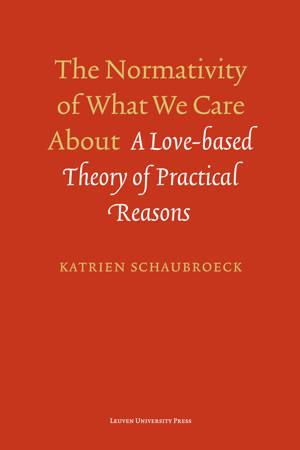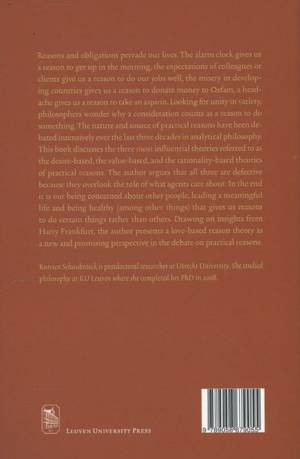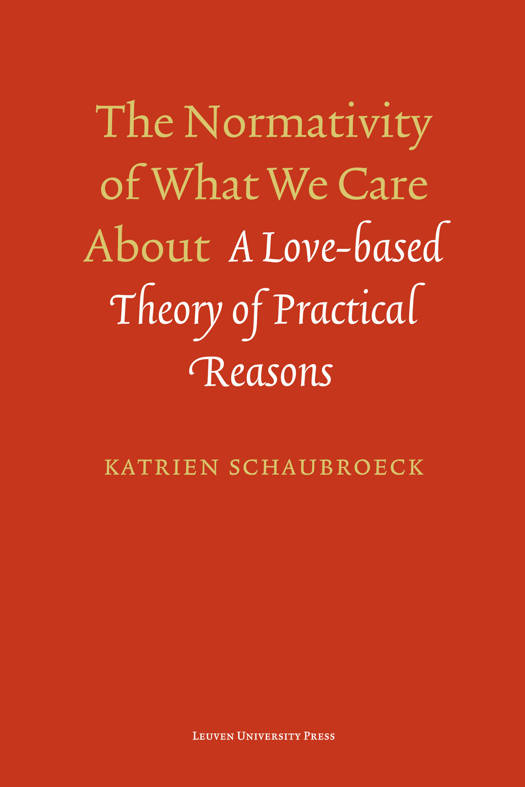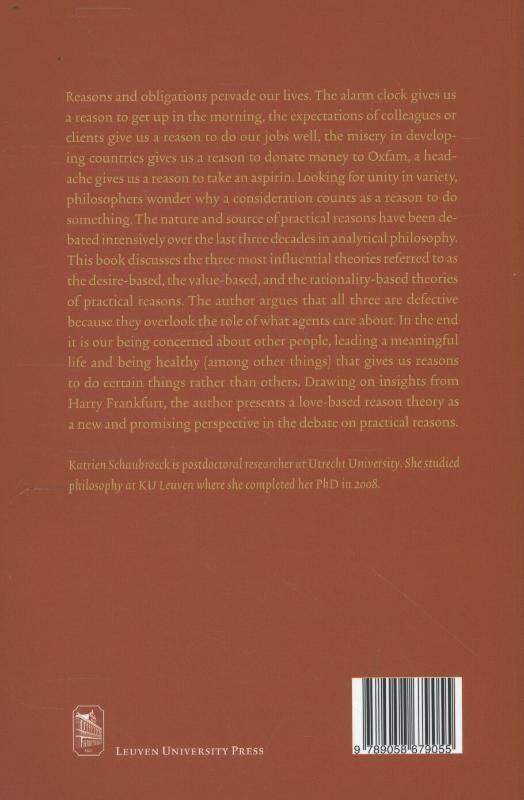
- Retrait gratuit dans votre magasin Club
- 7.000.000 titres dans notre catalogue
- Payer en toute sécurité
- Toujours un magasin près de chez vous
- Retrait gratuit dans votre magasin Club
- 7.000.0000 titres dans notre catalogue
- Payer en toute sécurité
- Toujours un magasin près de chez vous


The Normativity of What We Care about
A Love-Based Theory of Practical Reasons
Katrien SchaubroeckDescription
Reasons and obligations pervade our lives. The alarm clock gives us a reason to get up on the morning, the expectations of colleagues or clients give us a reason to do our jobs well, the misery in developing countries gives us a reason to donate money to Oxfam, a headache gives us a reason to take an aspirin. Looking for unity in variety, philosophers wonder why a consideration counts as a reason to do something. The nature and source of practical reasons have been debated intensively over the last three decades in analytical philosophy.This book discusses the three most influential theories referred to as the desire-based, the value-based, and the rationally-based theories of practical reasons. The author argues that all three are defective because they overlook the role of what agents care about. In the end, it is our being concerned about other people, leading a meaningful life, and being healthy (among other things) that gives us reasons to do certain things rather than others. Drawing on insights from Harry Frankfurt, the author presents a love-based reason theory as a new and promising perspective in the debate on practical reasons.
Spécifications
Parties prenantes
- Auteur(s) :
- Editeur:
Contenu
- Nombre de pages :
- 208
- Langue:
- Anglais
Caractéristiques
- EAN:
- 9789058679055
- Date de parution :
- 15-09-13
- Format:
- Livre broché
- Format numérique:
- Trade paperback (VS)
- Dimensions :
- 160 mm x 236 mm
- Poids :
- 385 g

Les avis
Nous publions uniquement les avis qui respectent les conditions requises. Consultez nos conditions pour les avis.







